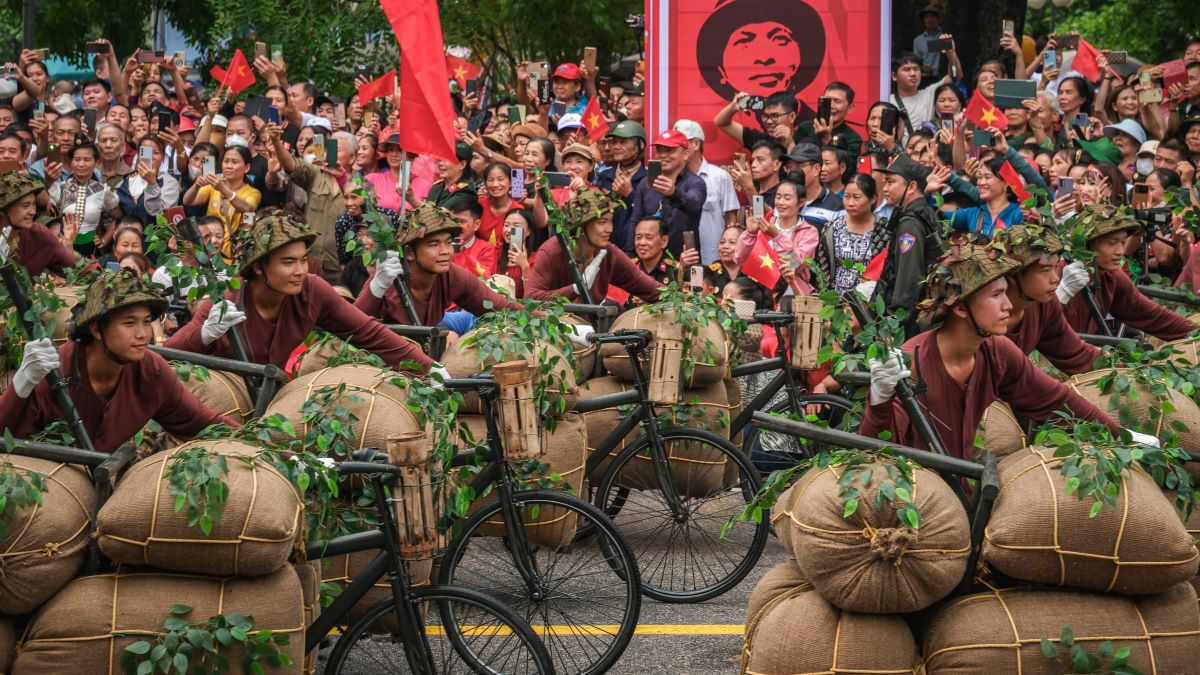In 1954, a significant battle took place in a remote valley in Vietnam called Dien Bien Phu.
It was the mid-20th century, and France, like many European powers, was desperately clinging to its colonial possessions. By this time, colonialism was already the embarrassing old uncle at the global family dinner. The post-World War II era brought about a wave of nationalism and anti-colonial sentiment that swept across Asia. Independence movements were gaining momentum, and by 1946, the French were finding it increasingly difficult to hold onto their colonial possessions.
Then the battle of Dien Bien Phu, the culminating clash between the French and the Viet Minh revolutionaries, changed everything.
How it all went down
Dien Bien Phu was chosen by the French as a fortified stronghold intended to cut off Viet Minh supplies and to lure the guerrilla forces into a debilitating battle. The French, not to be outdone in the department of terrible decisions, believed their superior technology and aerial support would guarantee a swift victory. Sounds straightforward enough. Thing is, the Viet Minh, led by the crafty General Vo Nguyen Giap, weren’t reading from the same script.
The Viet Minh, with their intimate knowledge of the terrain and their sheer determination, managed to surround the French base and cut off their supply lines. They brought in heavy artillery pieces, piece by piece, over mountains, through jungles, and on bicycles. Yes, bicycles—the two-wheeled secret weapon of logistics. This was a feat that the French had thought impossible.
Over the next several weeks, the Viet Minh maintained the pressure with more attacks. For 56 days, the two sides engaged in a brutal slugfest, with the French defenders valiantly holding out against overwhelming odds. They couldn’t hold on to their positions, and their situation got worse daily.
On May 7, 1954, the Viet Minh launched a final massive attack. They overran the main French headquarters, and that was it – the French had to surrender. The fall of Dien Bien Phu was a shock to the French public and a blow to the prestige of France worldwide.
Why it was a big deal
The repercussions of the battle were far-reaching. For the French, it was a humiliating defeat that effectively ended their colonial rule in Indochina. For the Vietnamese, it was a watershed moment that galvanized the nationalist movement and set the stage for the Vietnam War.
The Geneva Accords were signed shortly after, which divided Vietnam into North (under the Viet Minh) and South (under a government friendly to the West). This set the stage for the Vietnam War, involving the U.S. in an attempt to stop the spread of communism.
If history were a movie, then the Battle of Dien Bien Phu could be pitched as one of its most dramatic climaxes –a David vs. Goliath story, where the underdog not only wins but also dramatically alters the course of an entire region’s destiny.

